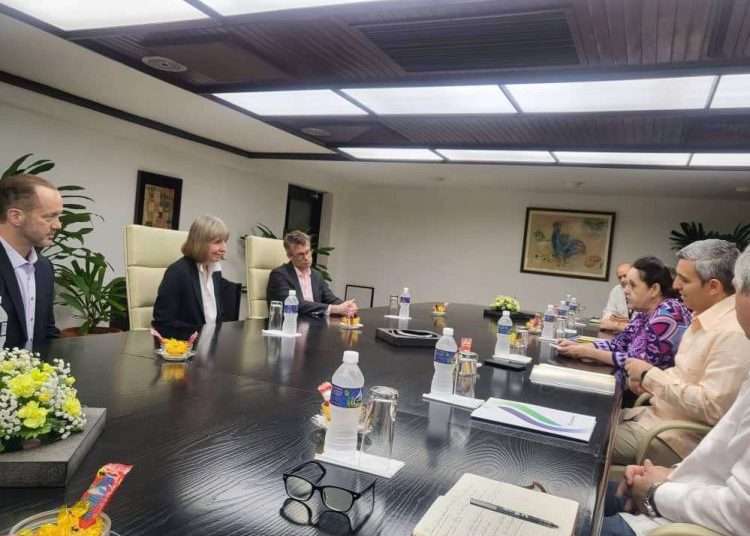Cuban Deputy Prime Minister Jorge Luis Perdomo met this Tuesday with scientists from the Roswell Park Cancer Institute (RPCI), from the United States, who are visiting the island with the purpose of expanding collaboration with Cuban scientific institutions.
Perdomo assessed the meeting as “very important” and considered the cooperation between the U.S. institute and the Cuban Center for Molecular Immunology (CIM) as “an example of what both countries can advance despite the blockade policy against the island,” according to a report by Prensa Latina (PL) news agency.
https://twitter.com/JorgeLuisPerd20/status/1617968404056399872?ref_src=twsrc%5Etfw%7Ctwcamp%5Etweetembed%7Ctwterm%5E1617968404056399872%7Ctwgr%5E6f9f3d11e9dc3209b5db5330c8d8d4e0a3139751%7Ctwcon%5Es1_&ref_url=https%3A%2F%2Foncubanews.com%2Fcuba%2Fciencia%2Fsalud-en-cuba%2Fautoridades-cubanas-y-expertos-de-eeuu-proyectan-ampliar-colaboracion-en-estudios-contra-el-cancer%2F
The official celebrated that recently the Office of Foreign Assets Control (OFAC) of the United States Department of the Treasury extended until 2027 the license to the RCPI to continue cooperation with Cuba in the fight against cancer.
The president and CEO of the RPCI, Candace Johnson, stressed that in recent years a long journey has been covered in this project that built a relationship of trust between the two institutions.
She added that Cuban scientists are “very innovative and develop different approaches to problem solving,” so this union can produce many good things for both parties, the publication added.
Since 2011, the RPCI and the CIM have collaborated in carrying out clinical studies of various products developed by the Cuban institution for the treatment of cancer.
Both institutions came together in 2018 to create a biotechnology joint venture called the Innovative Immunotherapy Alliance, with the aim of researching and developing new cancer drugs and therapies.
At that time, Roswell Park, based in New York City, described the cooperative relations it maintains with Cuban scientists as “a historic trip,” specifically with regard to the commercialization in the United States of the CIMAVax-EGF therapeutic vaccine created on the island.
This drug has shown positive effects in prolonging the lives of patients with non-microcytic lung cancer.
PL recalls that the RPCI was founded in 1898 as the first center of its kind in the North American nation and is currently a leader in cancer research in the world.
The CIM is a closed-cycle biotechnological institution in charge of the research, development, production and commercialization of scientific projects, especially for the treatment of cancer and other autoimmune diseases.










